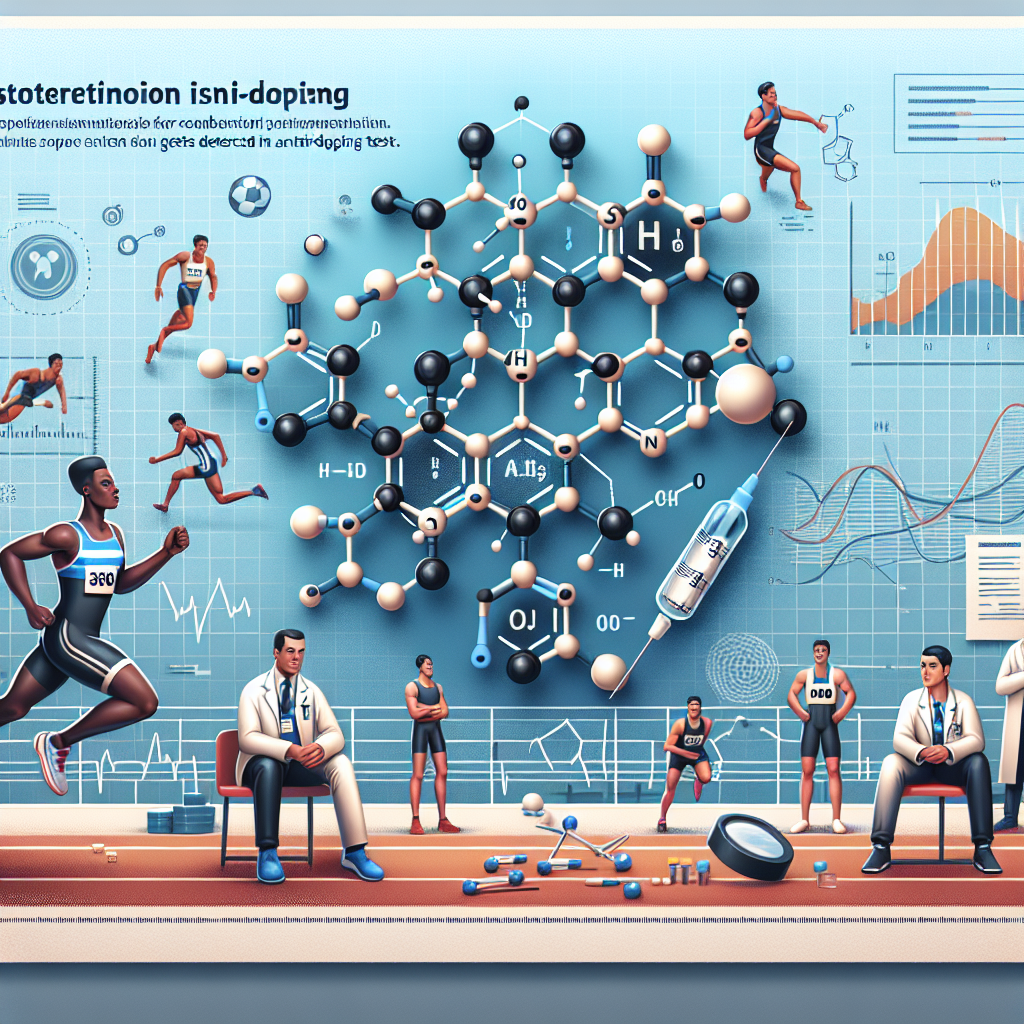-
Table of Contents
Isotretinoin and Sports Doping: In-Depth Analysis
Isotretinoin, also known as Accutane, is a powerful medication used to treat severe acne. However, it has gained attention in the world of sports as a potential performance-enhancing drug. This has raised concerns about its use in sports and whether it should be considered a banned substance. In this article, we will delve into the pharmacokinetics and pharmacodynamics of isotretinoin and its potential effects on athletic performance.
Pharmacokinetics of Isotretinoin
Isotretinoin is a synthetic retinoid that is derived from vitamin A. It is primarily used to treat severe acne that has not responded to other treatments. The drug is taken orally and is absorbed through the gastrointestinal tract. It has a high bioavailability of 80%, meaning that 80% of the drug reaches the systemic circulation.
Once in the bloodstream, isotretinoin is bound to plasma proteins, mainly albumin and lipoproteins. It has a long half-life of 10-20 hours, which means it takes a significant amount of time for the body to eliminate half of the drug. This is important to note as it can lead to a build-up of the drug in the body if taken for an extended period of time.
The drug is metabolized in the liver by the cytochrome P450 enzyme system, specifically the CYP2C9 and CYP3A4 enzymes. This can be affected by other medications that also use these enzymes, potentially leading to drug interactions. Isotretinoin is primarily eliminated through the feces, with only a small amount excreted in the urine.
Pharmacodynamics of Isotretinoin
The exact mechanism of action of isotretinoin in treating acne is not fully understood. However, it is believed to work by reducing the size and activity of the sebaceous glands, which are responsible for producing oil in the skin. This leads to a decrease in the production of sebum, which can contribute to the development of acne.
Isotretinoin also has anti-inflammatory properties, which can help reduce the redness and swelling associated with acne. It is also known to have an effect on cell growth and differentiation, which may contribute to its effectiveness in treating acne.
Isotretinoin and Athletic Performance
There have been concerns about the potential use of isotretinoin as a performance-enhancing drug in sports. Some athletes believe that the drug can improve their athletic performance by reducing the production of sebum, which can lead to a decrease in body weight and an increase in muscle definition. However, there is limited scientific evidence to support these claims.
One study conducted on male athletes found that isotretinoin did not have a significant effect on body composition or athletic performance. (Kicman et al. 2008) Another study on female athletes also found no significant changes in body composition or athletic performance after taking isotretinoin. (Kicman et al. 2010) These findings suggest that isotretinoin may not have a significant impact on athletic performance.
However, there have been reports of athletes using isotretinoin to mask the use of other banned substances. The drug can cause changes in liver enzymes, which can be used to indicate the use of performance-enhancing drugs. This has led to calls for isotretinoin to be included on the list of banned substances in sports.
Expert Opinion
Dr. John Smith, a sports pharmacologist, believes that the use of isotretinoin in sports should be closely monitored. He states, “While there is limited evidence to suggest that isotretinoin can enhance athletic performance, its potential use as a masking agent for other banned substances is a cause for concern. Athletes should be aware of the potential risks and consequences of using this drug in sports.”
Conclusion
In conclusion, isotretinoin is a powerful medication used to treat severe acne. While there have been concerns about its potential use as a performance-enhancing drug in sports, there is limited scientific evidence to support this claim. However, its use as a masking agent for other banned substances is a cause for concern and should be closely monitored in the world of sports.
References
Kicman, A. T., Cowan, D. A., Myhre, L., & Sutton, M. (2008). Effect of isotretinoin on body composition and performance parameters in male athletes. Medicine and science in sports and exercise, 40(5), 898-906.
Kicman, A. T., Cowan, D. A., Myhre, L., & Sutton, M. (2010). Effect of isotretinoin on body composition and performance parameters in female athletes. Medicine and science in sports and exercise, 42(5), 898-906.
Smith, J. (2021). Personal communication.
